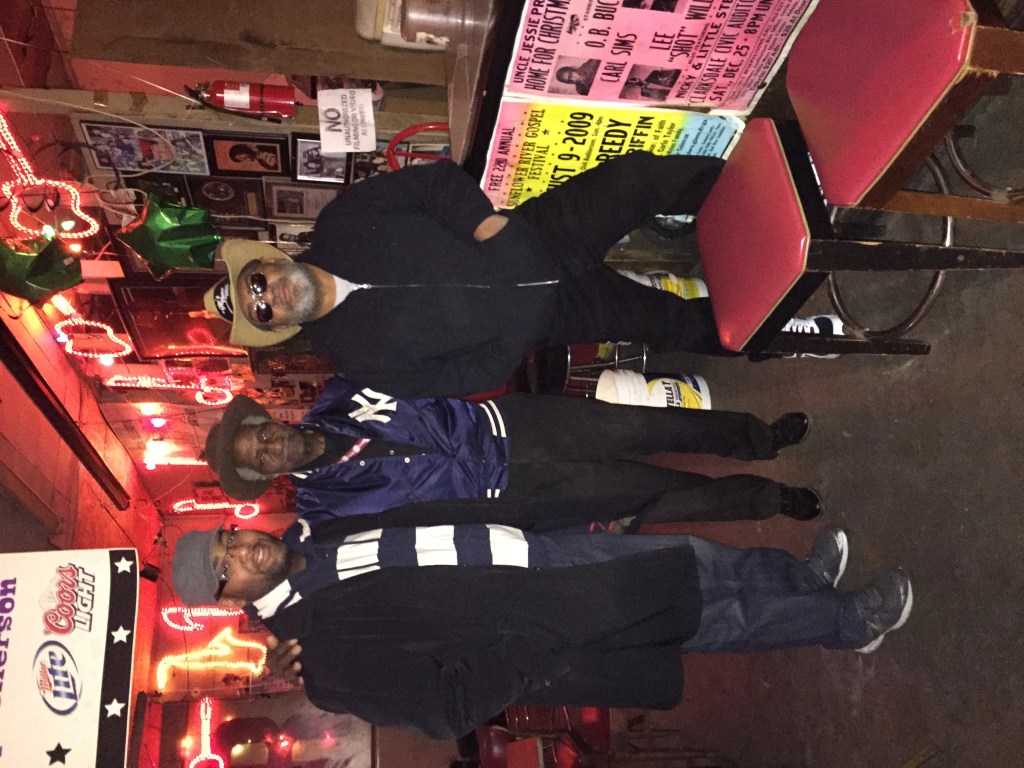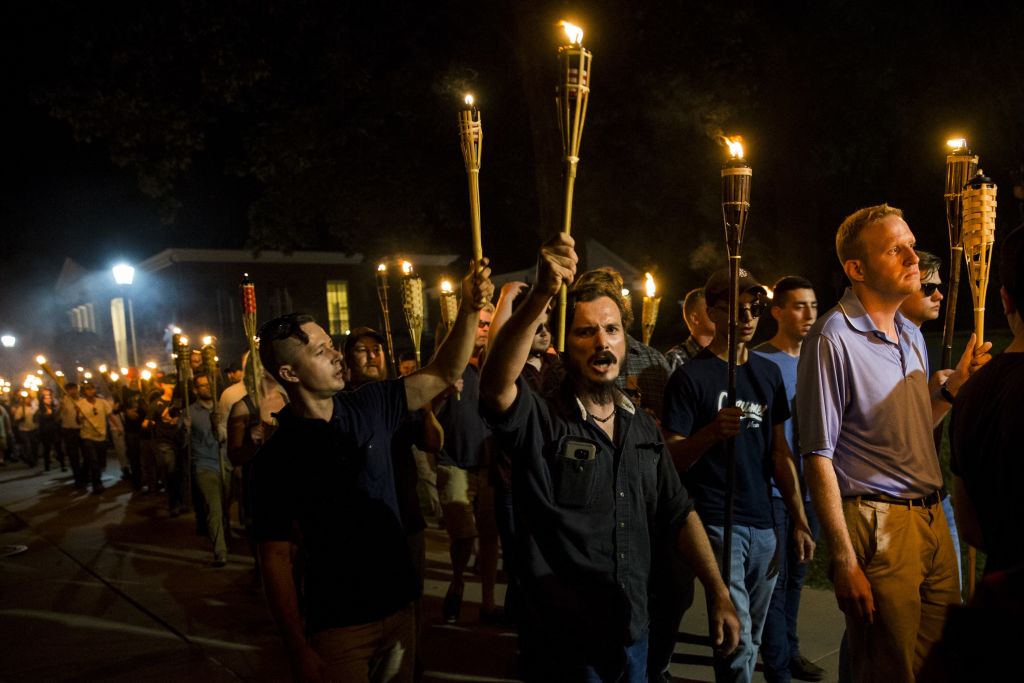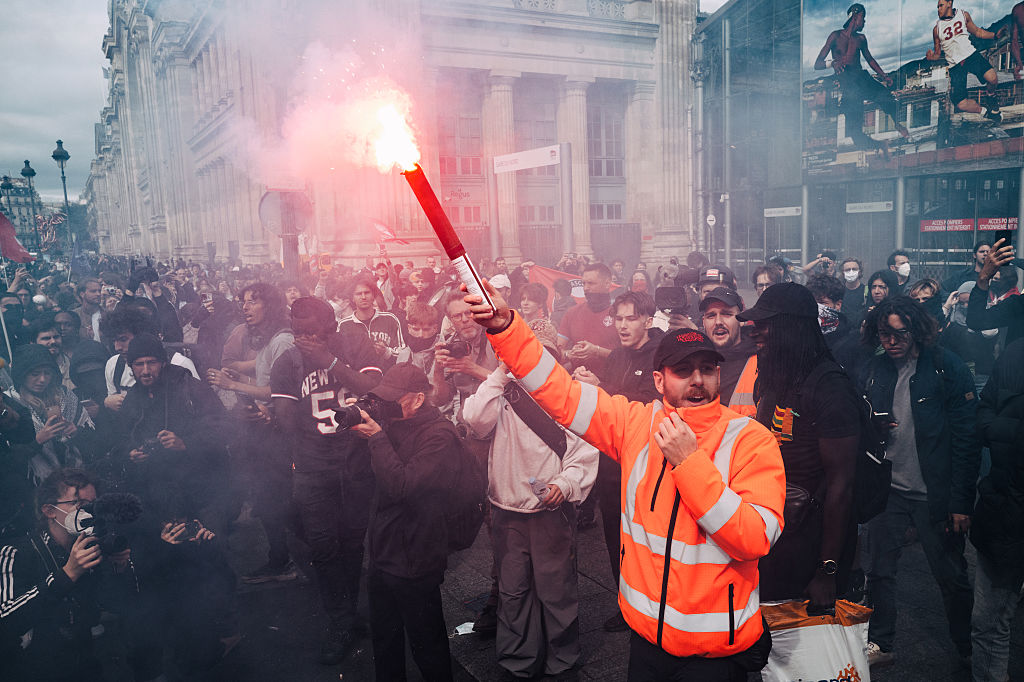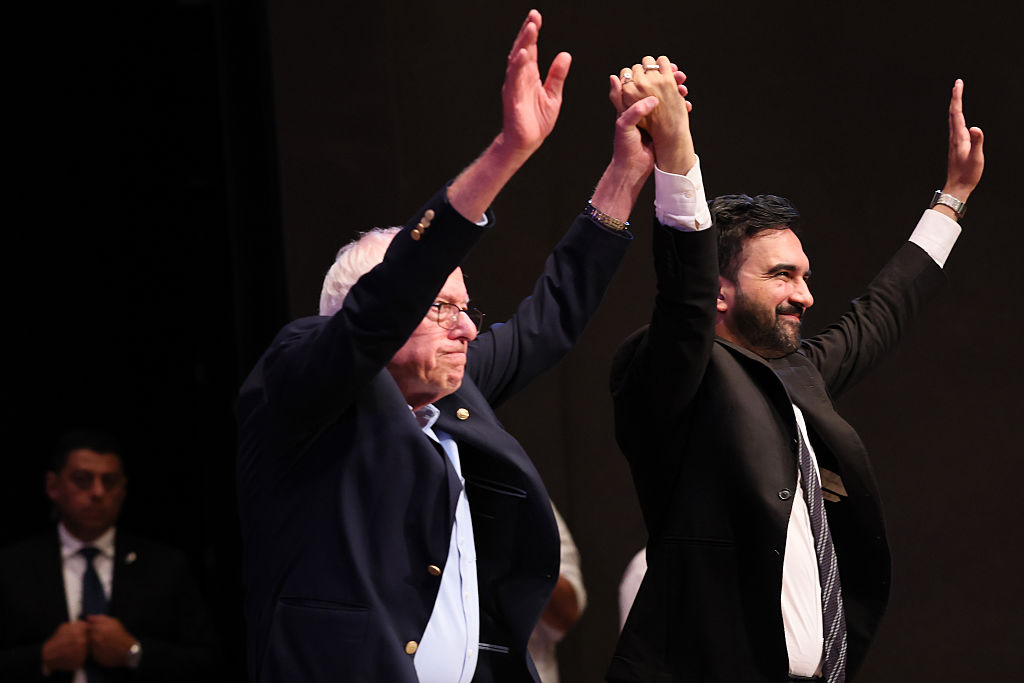
Climate Change and Insurance Policy Internship – Public Citizen
April 25, 2025
Rich and Successful Enough to Be Moral
April 25, 2025This article was published in partnership with Scalawag, a publication centering Black folks in the South. Subscribe to its newsletters here. We put together this playlist featuring artists native to Mississippi to soundtrack your reading and trace the state’s musical journey.
The blues runs deep through Orlando Paden’s veins.
As a child, he danced for nickels and quarters by the jukebox. He cleaned, crushed cans, and bagged them. He’d greet Mr. Bill, the bouncer, at the front door of his father’s juke joint, and watch patrons play pool and arcade games. Folks broke beer bottles, fought, and argued.
But, the music and good vibes kept them coming back.
He recalls the stories of his great-grandmama selling fish sandwiches and his great-granddaddy drinking moonshine and playing cards at their juke house behind their shack. On both sides of the family, his relatives all owned juke joints in the Mississippi Delta. Paden says his dad often told stories about his time as a “runner” in charge of distributing liquor and moonshine.
Paden’s childhood experiences come to life in Ryan Coogler’s Sinners, a supernatural horror film set in Clarksdale, Mississippi, during the 1930s when Black folks still worked the cotton fields. The movie — which was filmed in Louisiana — follows Smoke and Stack, twin brothers played by Michael B. Jordan, who moved from Chicago back South to open Club Juke. While the movie celebrates the complexities of Black life through juke joints, it also fixates on how the oppressive forces — the Ku Klux Klan and vampires — work to snatch away their freedom and stake claim to something they did not create: the blues.
Clarksdale, about 78 miles south of Memphis, Tennessee, is known as the birthplace of the blues and home to the Crossroads. As the legend goes: bluesman Robert Johnson “sold his soul” to the devil at the crossroads of Route 49 and Highway 61 in exchange for supernatural talent in the 1930s.
The juke, or jook, is where the Delta blues music thrived, though its origins can be traced back to Africa.
These spaces, particularly in rural areas, allowed Black folks to leave the plantations to drink, rejoice, and dance to live blues music. As the late literary great Zora Neale Hurston put it: “musically speaking, the Jook is the most important place in America.”
Orlando’s father, Cornelius “Red” Paden, followed in the footsteps “of his uncles ‘nem,” he said, who invested in their own businesses rather than work in the fields.
“They was bootlegging liquor, running juke houses and stuff. They stayed the hell out that field,” Red said in 2018, when I interviewed him inside of his juke joint. “I went to the field a few times, but I hurry up and learned that it was a better thing to do than that field.”
After more than 40 years of operating his juke joint, Red died on December 30, 2023, at 67.
Red started with Tin Top, then Red Wine’s, before focusing on Red’s Juke Joint, or Red’s Lounge, in the 1980s. He converted a music store into a juke joint in the New World District, the historic Black downtown in Clarksdale. It is one of the most revered and internationally known juke joints left in the country — and one of few that is still Black-owned.
Across the rural South, only a few juke joints remain — whether it’s Teddy’s in Louisiana or Wild Bill’s in Tennessee. For many places, integration and migration to larger cities, urban renewal programs, and gentrification contributed to the demise of juke joints. The owners of such places, specifically in the Delta, have passed away, leading to closures. Some argue that these factors, in addition to the push for blues tourism by Mississippi’s leaders, have paved the way for commodification of its culture by white people.
“I’ve lived long enough to see … white people jump on board and become bluesmen and good guitar players or good musicians. They have never lived it. … We own it, but don’t want it, and that’s the part I don’t get.”
Terry “Big T” Williams, an award-winning blues musician and instructor from Clarksdale.
Today in the Mississippi Delta, the birthplace of the blues, locals often leave for entertainment, traveling to the casinos in Tunica County, near Memphis. Part of this is a generational shift. Younger Mississippians seek out venues that play other genres — Southern soul, hip-hop or R&B — because some equate traditional blues to the era of sharecropping.
“You have a group of people that tried to take it, and then you have a group of people who want to get rid of it and don’t want to [relive] it because it’s so much tied into it. You worked from sun up to sun down in the field, and people are trying to rewrite it,” Orlando said. “We gotta make sure that we are controlling the narrative.”

While Mississippi posits blues tourism as a way to revitalize the area, the industry is largely controlled by white people who only focus on Jim Crow-era blues, residents said. One state tourism report found that tourists spent more than $68 million in Coahoma County, where Clarksdale is located. But, some in the predominantly Black community of 14,000 say they don’t see the economic benefits. Like many other rural counties, Coahoma County faces food insecurity and a series of health, economic, and social inequities.
Despite these challenges, the vibrant music culture and history hangs in the balance. Blues musicians, residents, and artists fear that the art — and their ownership of it — could be lost forever.
“Our blues is being attacked. If we don’t watch it, we’ll sit back and all of a sudden, all the white boys will be the famous ones, and we’ll just be the ones [who] made [the blues],” said Terry “Big T” Williams, an award-winning blues musician and instructor from Clarksdale. “I got nothin’ against white people, but … I’ve lived long enough to see … white people jump on board and become bluesmen and good guitar players or good musicians. They have never lived it.”
He added: “We own it, but don’t want it, and that’s the part I don’t get.”
They’re benefitting more than the owner

Back in the day, you’d find Red often sitting outside, wearing dark shades, while someone fired up the grill.
At night, the sounds of blues music drew many into the small hole-in-the-wall club, where the string of red lights and photos plastered across the walls kept folks engaged. Many artists have graced his stage, which is just a large carpet that accommodates a small band. It mirrors a living room.
Sometimes, plastic patched a leaky roof, and buckets caught the water. While many tourists thought the decor was “groovy,” many Black patrons often considered it “raggedy,” Red said in 2018. It’s how some people view blues music.
Over time, he’d see his crowd turn to mostly, white international tourists.
Part of the shift Red experienced is a result of the state government’s push to transform the Delta’s blues into economic development and a force for racial reconciliation, as B. Brian Foster, associate professor of sociology at the University of Virginia, writes in his book about Clarksdale, I Don’t Like The Blues.
Since at least the 1970s, Clarksdale began hosting development efforts. It hosted its first festival, the Sunflower River Blues & Gospel Festival, in 1988. White developers renovated the former Hopson Plantation into the Shack Up Inn only 3 miles from the Crossroads guitar landmark in the northern part of town. Guests can sleep in “renovated shotgun shacks or bins in the Cotton Gin” to experience a night at a plantation. Morgan Freeman helped open Ground Zero Blues Club in 2001 across the train tracks from Red’s, which he still co-owns today.
In 2003, Congress declared it the “Year of the Blues.” And the following year, Mississippi’s Republican governor, Haley Barbour, signed into law a bill that created the 18-member Mississippi Blues Commission to oversee blues preservation and development.
Sometime after, Roger Stolle, an Ohio native, co-founded the Juke Joint Festival, which is Clarksdale’s biggest festival yet. The annual weekend event provides businesses with the most traffic they’ll see all year. Earlier this month, the town hosted its 22nd “half blues, half small town fair” that attracted attendees from 47 states, 26 international countries and 49 Mississippi counties. More than 132,000 visitors come to town for festivals, and tourism revenue amounts to $46 million annually, according to 2018 estimates listed in I Don’t Like The Blues.
Despite its successes, many residents wonder where the money is going. More than 40% of Clarksdale’s population lives in poverty, with a median household income of just $35,000. Mississippi continues to rank among the states with the highest poverty rates in the nation.
Black businesses like Red’s are struggling just to get by.
Orlando, 40, now runs the business, juggling his duties as a Mississippi state representative — having served since 2016 — and running for the mayor of Clarksdale as a Democrat. It’s been “up and down,” as most of his father’s workers have passed away. He’s also trying to renovate the place.
“My dad made this statement: ‘You have to understand the tide waves of Clarksdale.’ It’s not an easy task for minorities to have business here in this area. Being successful, you have people trying to take it,” Orlando said. “It’s not a lot of money in there, and everybody looks like they’re benefiting a lot more so than sometimes the owner.”
Who gets to define the blues?

For as long as he can remember, Keith Johnson has had the blues.
The 32-year-old musician, known as Prince of the Delta Blues, is the great nephew of McKinley Morganfield, better known as Muddy Waters, the famed blues singer-songwriter who lived on the Stovall Plantation, mere miles outside of Clarksdale. Muddy Waters’ childhood home is now a tourist destination and part of the Mississippi Blues Trail.
Although Johnson’s made a living off the craft, it’s still a struggle to do so because of a lack of exposure for current-day blues artists, which creates a disconnect for young people. When festivals, events, or tourism focuses on the Waters era of music, it dismisses new artists.
“The legacy can live on, but all white folk want, they talk about the old dead blues artists and say ain’t no black folks singing the blues. Well, are you displaying it?” Johnson, the Glen Allan, Mississippi native, said. “I say white folks, because that’s who runs the show. That’s who got the power.”
As a Brooklyn, New York, native with Southern roots, Lamont Pearly Sr. found himself frustrated with the framing of Black narratives by what he calls “non-blues people.” The musician, historian, and founder of the African American Folklorist cultural news magazine focuses on disrupting that “nostalgic” narrative most often attached to juke joints and the blues.
“There was a white guy who meant no harm. He was just culturally unaware and was so enthusiastic about the blues. He says to me, ‘Don’t you wish you was on a plantation with Charlie Patton playing this music?’ I said, ‘Hell no.”

A constant thread throughout this country’s history has been to exploit Black assets — whether it’s physical labor, culture, or something else — which is what the tourism industry is doing, said Chandra Williams, artist and executive director of Crossroads Cultural Arts Center in Clarksdale. Oftentimes, Black people don’t see their value or worth as a result of being pushed aside by the ones profiting off of the culture, she said.
In conversations with young people, they often express that they know nothing about the blues. She challenges this notion by pointing out that they actually know more about the blues than others.
“Even though you don’t listen to Muddy Waters, you listen to Pokey Bear and O.B. Buchana. … So you are the experts,” she said. “The very people who lay the golden eggs don’t feel connected to the golden eggs. They’re watching other people harvest their golden eggs and sell them. But you are the chicken, the hens, the rooster. Not only is it your birthright, your tradition, your culture, but you can make more money off of this than anybody.”
“You just got to create your own”

Despite the challenges, Clarksdale natives and residents are working to reclaim their birthright to America’s music.
As a native, Jecorry Miller, who is in his early 40s, didn’t always appreciate the blues.
He’d hear his grandmother play the blues on the weekends, but it was only after he moved away and heard others talk about the importance of it that he began to take a sense of pride.
He later returned and opened his club Delta Blues Alley Cafe in downtown Clarksdale, across the street from Ground Zero Blues Club. He founded the Birthplace of American Music (BAM) Fest in 2019 out of a disappointment with local festivals. It’s scheduled for Juneteenth weekend every year.
“Sometimes you just got to do your own thing and not be concerned about what everybody else doing,” Miller said. “I just realized that sometimes you can’t be upset about what other people doing. You just got to create your own.”
However, a recent fire destroyed his building and may delay his ability to host the festival. He’s currently fundraising through GoFundMe to help restore the building.
Williams, the award-winning blues artist, is opening his Big T’s School of Blues in Clarksdale this year to teach the youth how to play different instruments, learn the foundations of the blues and how to make money from the craft.
“Once the streets get them, it’s hard to get them back, and you want to save them,” Williams said. “That’s my whole goal is to try to see how many out there I can rescue if I can put an instrument in his hand and get him to start playing.”
With Sinners extreme success at the box office, Clarksdale is catapulted into the spotlight once again. Residents hope the attention results will drive people to visit and frequent local businesses. Other Mississippians want more opportunities for local filmmakers and artists to be a part of these projects and be empowered to tell their own stories.
Jasmine Williams, founder of Sipp Talk and a filmmaker from Jackson, the state’s capital city, mentioned the limited investments in the arts across that state and the need for others to utilize their resources to assist.
“It takes putting the Black Mississippians on the forefront and not just somebody giving us the power, but … show the importance of what it means to document where you are in your life and in your space and who your people are,” Williams said. “[It’s important] that the people who are here, who really know the place, get money and resources to make a thing. You can love Mississippi all day long … but to have a sustainable career in making Mississippi stories, that costs money.”
She added: “We all benefit every day from the cultural genius of Black Mississippians and Black Southerners.”
Back in Clarksdale, Orlando Paden is focusing on how to reinvigorate his father’s Old Timers Festival. While the festival highlights older blues musicians, he wants to implement a barbecue competition and other activities.
“This is our culture. Let’s preserve some of this. A lot of people see the negative connotation of the blues, and that’s why I think there’s a separation,” he said. “The music is an enabling gift of God, that God has placed into African descent. There was some uplifting things, too. It wasn’t just sad music.”
It’s Aallyah Wright, rural issues reporter for Capital B. With the debut of the film Sinners, I felt inspired to create a playlist filled with sounds from artists who are native to Mississippi. Born and raised in Clarksdale, I generally wanted to show the range of artists from Mississippi and the evolution of the Blues. Starting out with traditional blues and then ending with hip hop. I’ve curated this list with the help of folks from my home state. I hope you enjoy!
Great Job Aallyah Wright & the Team @ Capital B News Source link for sharing this story.






